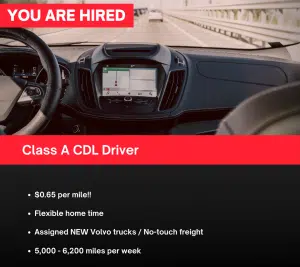
For the past 15 years, the United States has been experiencing a severe shortage of available and qualified truck drivers. According to a recent report by the nation’s largest trucking industry group, the American Trucking Associations (ATA), by the end of 2018, the industry was short 60,800 driver positions. The ATA predicts that this trend will only get worse, with the shortage potentially expanding to 160,000 positions by 2028. The report warns that if the industry cannot hire 1.1 million new drivers over the next decade, the nation’s freight demands may not be able to be met. However, for employers that are having difficulty recruiting and retaining truck drivers, sponsoring a foreign truck driver for a Green Card based on employment may be a viable solution. For those that are looking for a more short-term, temporary solution, consider the H-2B visa.
Legal Immigration as a Solution
One possible solution to help alleviate some of the driver shortages is to bring qualified foreign workers to the U.S. to cover these jobs. While applying for any immigration benefit to the United States is a complex and potentially long process, the benefits can nonetheless be worth the effort. This is especially true in an environment where a severe shortage of qualified workers means a potentially devastating loss in business opportunities.
Under the EB-3 Employment-Based Permanent Resident category for unskilled workers (requiring less than 2 years training or experience), a U.S. employer can petition to hire a foreign worker in a permanent (Green Card) capacity. To accomplish this, the employer must be able to demonstrate that there are insufficient workers in the United States to fill the roles. The trucking industry is in a potentially unique position with respect to this requirement because its labor shortage is well documented and severe, thus making the argument for needing to look outside the United States for capable workers a strong one.
Requirements for truckers
- Eligible for employment in the United States
- Valid Class “A” Commercial Driver’s License or enrolled in school to obtain your CDL
- Able to speak and read English
- All criminal convictions will be reviewed
- No DUI/DUII convictions in the past 5 years
- No reckless/careless/negligent driving convictions in the past 5 years
General Qualification:
Section 391.11 of the Federal Motor Carrier Safety Regulations (FMCSR) states that you must meet certain minimum requirements in order to operate a commercial motor vehicle (CMV). These qualifications are as follows:
- Must be 21 years old;
- Must be able to read and speak English well enough to converse, understand traffic signs, respond to official inquiries and fillout required forms and reports;
- Must have experience or training to safely operate the type of equipment you drive;
- Must pass a required physical exam and are physically qualified to drive;
- Must have passed and be issued a certificate of Driver’s Road Test;
- Must provide your employer a list of any violations for which you have been convicted in the last 12 months;
- Must not be disqualified to drive a CMV;
- Must have a valid operator’s license for the class of vehicle being operated.
You must also be able to determine whether the cargo you transport is properly loaded, distributed and secured.
As stated in 49 CFR Part 391 Subpart E you must pass a physical examination and have a medical examiner’s report and certificate in your possession. May Trucking Company must also keep a copy of the medical certificate in your driver qualification file.
Section 391.41 Subpart E of the FMCSR lists the physical characteristics that will disqualify you from driving a CMV. Your medical examiner will be familiar with these limits and will discuss them with you if necessary. You must also be familiar with these physical characteristics and inform the company of any changes in your health that may prohibit you from qualifying to drive.
